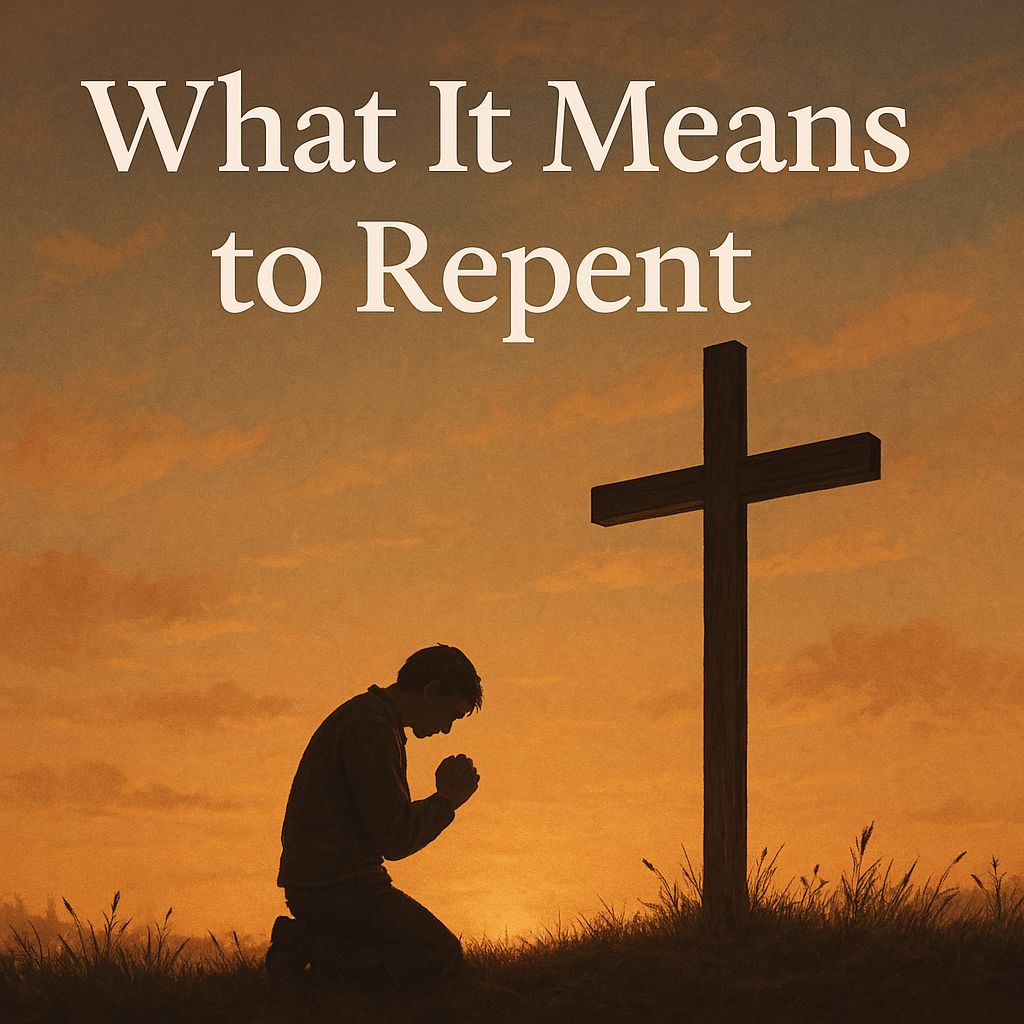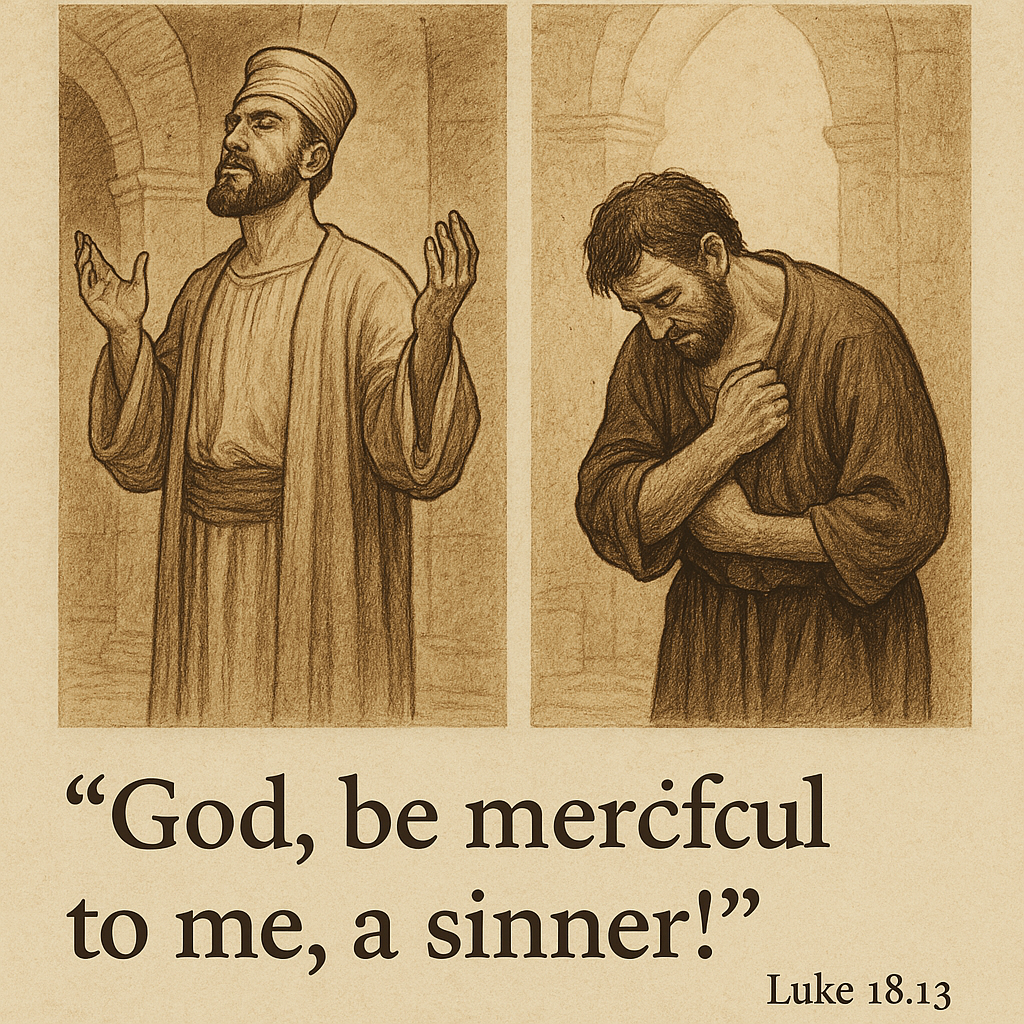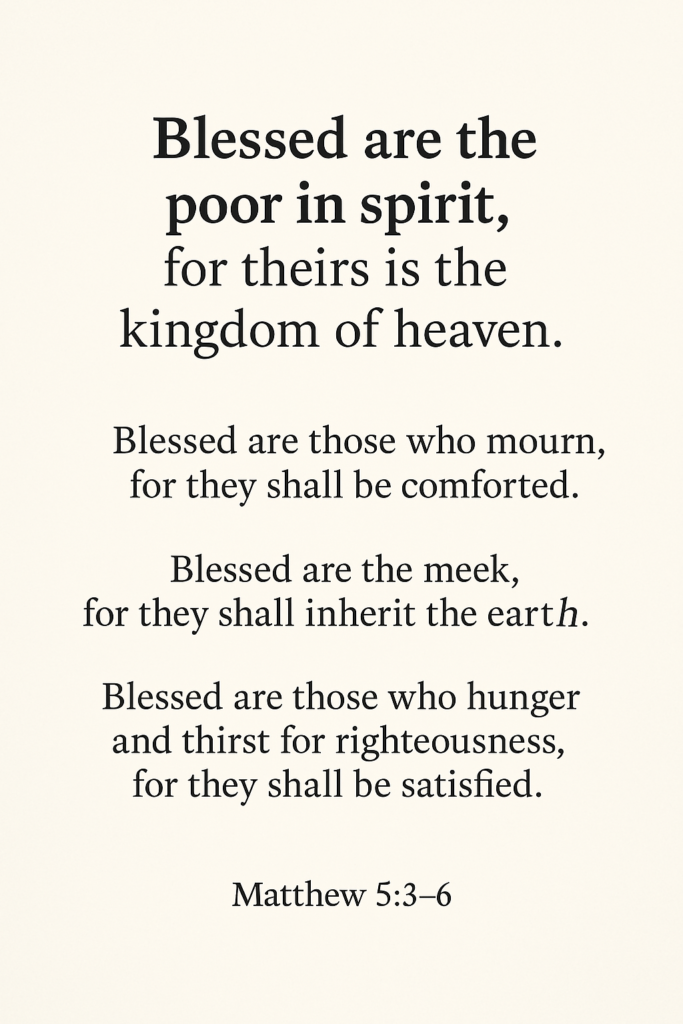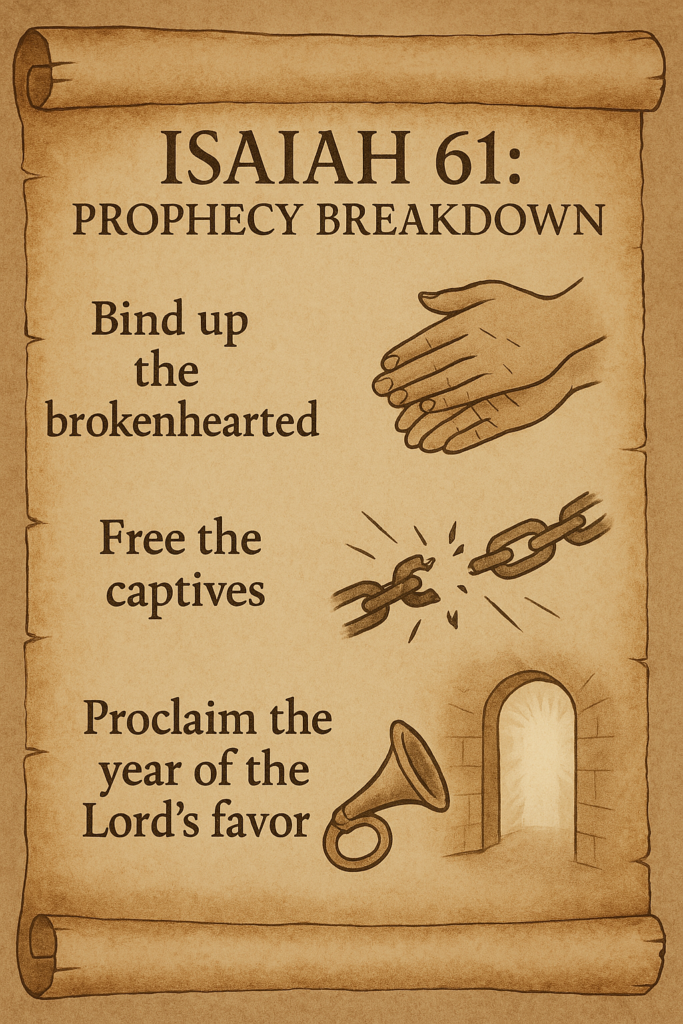 What It Means to Repent: A Teaching Based on the Words of Jesus
What It Means to Repent: A Teaching Based on the Words of Jesus
Many people struggle with sin, not because they are unwilling to change, but because they are trying to overcome it by their own strength. The result is often failure, frustration, and guilt. But Jesus offers a different path—a path of humility, surrender, and transformation. To understand what it means to repent, we must listen closely to the words of Jesus.
The Word Jesus Used: Metanoeō
When Jesus said, “Repent, for the kingdom of heaven is at hand” (Matthew 4:17), He used the Greek word metanoeō. This word doesn’t just mean to feel bad or regretful. It means to change your mind, your inner man. It implies a total transformation of how you see God, yourself, and sin. Repentance is not a work we do to earn forgiveness. It is the response of a heart that has been awakened by truth and humbled before God.
The Parable of the Pharisee and the Tax Collector

Jesus illustrated true repentance most clearly in His parable in Luke 18:9-14:
He also told this parable to some who trusted in themselves that they were righteous, and treated others with contempt:
“Two men went up into the temple to pray, one a Pharisee and the other a tax collector. The Pharisee, standing by himself, prayed thus: ‘God, I thank you that I am not like other men, extortioners, unjust, adulterers, or even like this tax collector. I fast twice a week; I give tithes of all that I get.’
But the tax collector, standing far off, would not even lift up his eyes to heaven, but beat his breast, saying, ‘God, be merciful to me, a sinner!’
I tell you, this man went down to his house justified, rather than the other. For everyone who exalts himself will be humbled, but the one who humbles himself will be exalted.”
The Pharisee relied on his own merits. He didn’t see his need. The tax collector, on the other hand, saw himself as he truly was: a sinner in need of mercy. He humbled himself before God—and that is the heart Jesus accepts. Repentance begins not with striving, but with surrender.
The Kind of People Who Inherit the Kingdom

Jesus opened the Sermon on the Mount with these words:
“Blessed are the poor in spirit, for theirs is the kingdom of heaven.” —Matthew 5:3
To be poor in spirit means to recognize your spiritual poverty—to know that apart from God, you have nothing. This is the starting point of true repentance.
“Blessed are those who mourn, for they shall be comforted.” (Matthew 5:4)
Mourning here is not just grief; it is the deep sorrow over sin that leads to a turning to God.
“Blessed are the meek, for they shall inherit the earth.” (Matthew 5:5)
Meekness is not weakness. It is strength under control. It is the heart that says, “Not my will, but Yours be done.”
All of these beatitudes describe the kind of heart that is open to the work of God. Repentance flows from this soil.
The Command to Abide and Bear Fruit
Jesus didn’t just call people to stop sinning. He called them to abide in Him. In John 15:5, He says:
“I am the vine; you are the branches. Whoever abides in me and I in him, he it is that bears much fruit, for apart from me you can do nothing.”
Overcoming sin doesn’t happen through self-effort. It happens through abiding—remaining in relationship with Jesus. As we do, He changes us from the inside out.
The Role of Humility
In Matthew 18:3-4, Jesus said:
“Truly, I say to you, unless you turn and become like children, you will never enter the kingdom of heaven. Whoever humbles himself like this child is the greatest in the kingdom of heaven.”
Repentance is childlike. It trusts God, depends on Him, and yields to Him. Humility isn’t just an attitude—it’s the gateway to transformation.
The Fulfillment of Isaiah 61: Jesus the Anointed One

In Luke 4:17-21, Jesus stood in the synagogue and read from the scroll of Isaiah:
“The Spirit of the Lord is upon me, because he has anointed me to proclaim good news to the poor. He has sent me to bind up the brokenhearted, to proclaim liberty to the captives, and recovery of sight to the blind, to set at liberty those who are oppressed, to proclaim the year of the Lord’s favor.”
Then He said, “Today this Scripture has been fulfilled in your hearing.”
Let’s break down what Isaiah said and how Jesus fulfilled it:
- “Anointed me to proclaim good news to the poor” – This speaks to spiritual poverty (“poor in spirit”). Jesus offers good news: you don’t have to earn your way to God. Come empty-handed.
- “Bind up the brokenhearted” – The word “bind” here in Hebrew (chabash) means to wrap, bandage, or heal. Jesus comes to personally care for those who are emotionally and spiritually wounded.
- “Proclaim liberty to the captives” – The Hebrew word (deror) for liberty means release or freedom, particularly from debt or bondage. Jesus came to free us from the chains of sin, guilt, and shame.
- “Opening the prison to those who are bound” – The Messiah unlocks what we cannot. He doesn’t just forgive sin; He frees us from its hold.
- “Proclaim the year of the Lord’s favor” – This refers to Jubilee, a time of restoration and mercy. In Jesus, the favor of God is no longer a future hope—it is present, active, and available to all who come to Him.
This prophecy in Isaiah paints a picture of what repentance leads to: healing, freedom, and favor from God. Jesus wasn’t just calling people to feel bad about sin; He came to break its power.
Final Thought: The Way Out of Sin Is Through the Door of Grace
If you’re struggling with sin, don’t try harder. Surrender deeper. Come to Jesus not with your resume, but with your brokenness. Humble yourself. Acknowledge your need. Ask for mercy. And He will not only forgive you—He will change your heart.
That’s what it means to repent.
Bonus Scriptures: Jesus Transforms the Heart

- Ezekiel 36:26-27 (fulfilled in Christ):”And I will give you a new heart, and a new spirit I will put within you. And I will remove the heart of stone from your flesh and give you a heart of flesh.”
- Matthew 11:28-30:”Come to me, all who labor and are heavy laden, and I will give you rest… learn from me, for I am gentle and lowly in heart, and you will find rest for your souls.”
- John 8:36:”So if the Son sets you free, you will be free indeed.”
- Revelation 3:20:”Behold, I stand at the door and knock. If anyone hears my voice and opens the door, I will come in to him and eat with him, and he with me.”
Jesus does not just offer commands. He offers transformation. That’s the heart of repentance.
 The Kingdom Jesus Taught
The Kingdom Jesus Taught